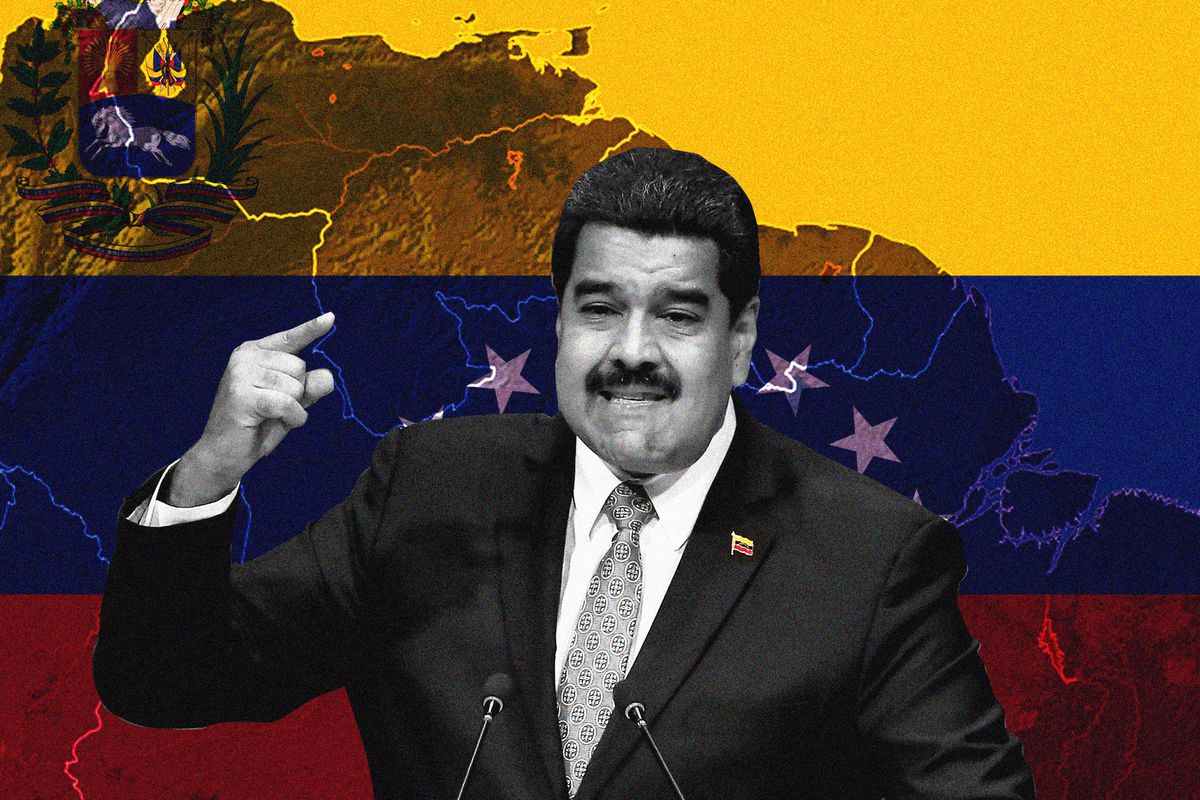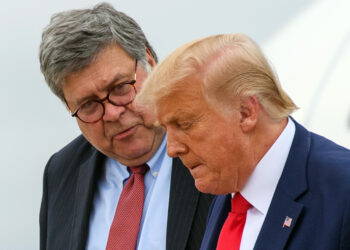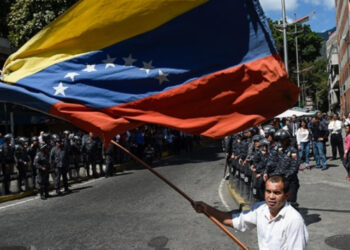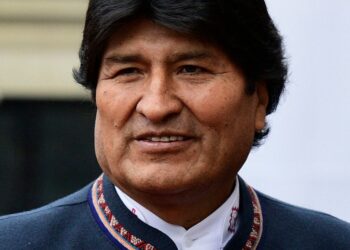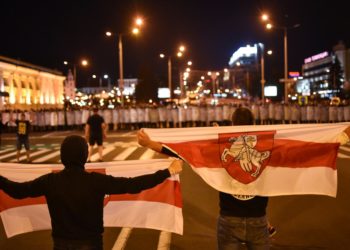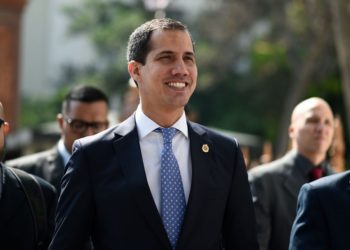According to Venezuelan electoral authorities, the recent May 20 election has confirmed Nicolas Maduro’s presidential victory with 68 percent of the vote.
Maduro’s victory has every appearance of being hollow given the persistent international concerns expressed about the fairness of the popular test, the low percentage of those who voted (46.1 percent compared to 80 percent in the 2013 presidential election) and the illegitimate nature of the election call itself.
Maduro’s fake Constituent Assembly effectively barred the opposition parties from participating in last weekend’s election. This latter point relates directly to the legitimacy of the hastily put together Constituent Assembly, more loyal to Maduro than the previous popularly elected National Assembly.
Despite all of these measures and slights of hand, the opposition performed well both in its non-participatory and participatory roles, if we are to believe the numbers.
Even before the actual vote, some countries called for a postponement of the election. In the fall of 2017, a number of Latin American foreign ministers plus Canada met in Lima, Peru, to evaluate measures that could bring Venezuela back into a more democratic pluralistic mode.
Even before the creation of the Lima Group, sanctions had been passed by the United States and the European Union (EU) targeting Maduro senior officials thought to be either drug dealers, arms dealers or anti-democratic forces. Calls from Donald Trump‘s U.S. have gone further and seek to target more economic targets like Venezuela’s oil sector.
One of the more alarming accusations leveled against the latest election is that Maduro used popular access to food as electoral blackmail. If this is true, the regime deserves thumbs down regarding the election. But, is it true?
The Lima Group has made a lot of allegations against Maduro, his government, and the elections. The domestic opposition in Venezuela, which boycotted election after having been barred from participation, has thrown its support behind the Lima Group. Nevertheless, there are some concerns about the Lima Group and its criticism.
First, how many of its Latin American members can boast having had free and fair elections in their own country? Mexico? Honduras? Even Canada, thanks to the Clarity Act of 2000, does not provide for a 50 percent plus one formula, if ever the Province of Quebec decided to vote to leave the federal umbrella. Moreover, one has to ask what is Canada doing in the Lima Group if not fronting for Trump’s right-wing unenlightened preppies actively fostering regime change in Venezuela?
Our cynicism with regard to Canada’s role is only heightened by recent revelations of spying on Cuba immediately after the Bays of Pigs invasion in the early 1960s. These revelations emanate from the Canadian Embassy officers themselves and refer to a secret accord between former U.S. President John Kennedy and Canadian Prime Minister Lester B. Pearson.
This agreement consisted of placing a dedicated resource inside the Canadian Embassy in Havana. The officer would receive specific taskings from the CIA and do its bidding on Cuban soil while all the time enjoying diplomatic immunity. Latin Americans have every right to raise their eyebrows regarding Canada’s presence in the Lima Group. The history of fronting for the Americans and the CIA is old hat in this region of the world.
The whole thing is beginning to look like a vehicle for regime change. It is a convenient vehicle because it gives multi-lateral cover something the European Union understands all too well. That is how they got away with eliminating the right to self-determination in Catalonia.
Even novices and newcomers to Central and Latin America politics know that regime change always translates into America and U.S. strategic economic and political interests. From the United Fruit Company and the Bay of Pigs, to the military coups in Chile, Guatemala and elsewhere, including the not-so-smooth invasion of Panama using Noriega’s drug dealing as a pretext, we can be excused for entertaining the idea that regime change could be the real design behind the Lima Group, not just the desire to have fair elections in Venezuela.
This is an old familiar pattern in the Americas. Permit us, skeptics, to not rule it out. This is not to excuse the Maduro people or Hugo Chavez‘s own responsibility for the woes of Venezuela. However, if the objective is to rally support for a fair election, it would be necessary to marshal some proof of the Lima Group allegations.
Recalling their ambassadors and raising the specter of more sanctions on the heels of the Maduro re-election only raise doubts about the Lima Group intentions, to say nothing of the political history of each of its members. Should Venezuela really be taking lessons in democracy from Honduras?
Another criticism centers around the low popular vote of May 20, which hovers around 46 percent. This was to be expected given the opposition boycott of the election, whatever the reasons for it. However, one could easily turn the accusation back on many of the Lima Group members themselves and the popular vote percentages in their own elections.
Venezuela is a troubled country. It is probably poorly governed by Maduro, who inherited the Chavez populist mantra. Its socialist and populist vision clearly upsets some of its neighbors. Its foreign friends like Hezbollah, Cuba, and Bolivia are not liked by many nations. Sanctions likely do not help open debate by driving Maduro into the hands of non-democratic groups, and they rarely help the people of the targeted country. Thankfully humanitarian goods have not been embargoed although if they go to the Maduro faction or are used as electoral bait, they fail.
Often, foreign sanctions achieve the opposite of what they are supposed to, and the people interpret them as ill-intentioned. The result is more nationalism and less openness to change and debate from the outside. Russia and Iran are prime examples of this unwanted reaction to sanctions.
Now we turn to the E.U. and their quixotic reaction to Maduro’s re-election to a second term as president. Always Johnny-on-the-spot to condemn everything from Turkey’s jailed journalists to baby seals and other assorted mammals wherever they may be, the Europeans have disputed the fairness of the election in Venezuela. Where were they when Spain, with the support of Germany, France and Italy sanctimoniously dismantled the right to self-determination of Catalonia using believe it or not “constitutional grounds”?
What we did not understand was that “constitutional grounds” means something similar to Francisco Franco‘s “keep Spain in a forced union no matter what the means taken.” So, complaining about Venezuela is like much like the “pot calling the kettle black.”
Maduro’s tour de force in replacing one elected body by another and barring the opposition from democratic elections is not very different from what Spain did to the independence leaders and elected officials of Catalonia. The Europeans have no credibility either in Latin America or on their own continent, and their measures regarding the Venezuela election look more like a slothful attempt at appeasing U.S. isolationism in a vain effort to avoid a Trump-incited trade war.
Show us the proof of electoral fraud on the ground. The illegitimate nature of the election call is a point well taken but is it enough to counter the accusation that all this is a Trumped-up attempt at regime change? Are we to read “John Bolton“ in these measures?
Despite its chequered history, perhaps the Organisation of American States (OAS) could play a constructive role in appointing a group of experts approved by both sides to investigate claims of election fraud. In the meantime, the Lima Group needs to come to terms with the regime change argument and provide proof and concrete measures designed to improve the quality of life of the individual Venezuelan. They require our support, not more fiery rhetoric designed to mollify the nihilists running the White House.
Is the Lima Group objective to punish or rehabilitate Venezuela and its political system? We may not have long to wait until the next shoe drops. If the leftists win the upcoming elections in Mexico, Maduro may gain a new friend, but Trump will have to rethink his southern strategy or face new much more serious challenges than building a wall on the border.


